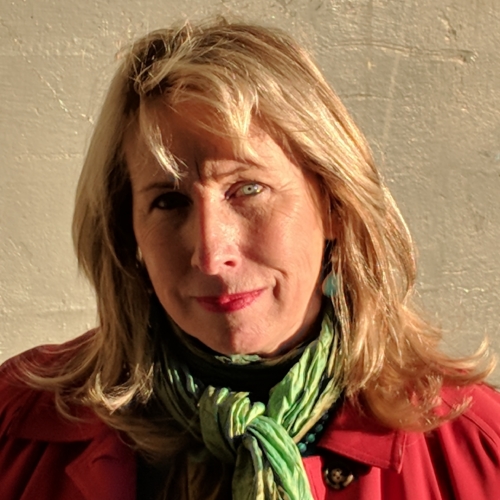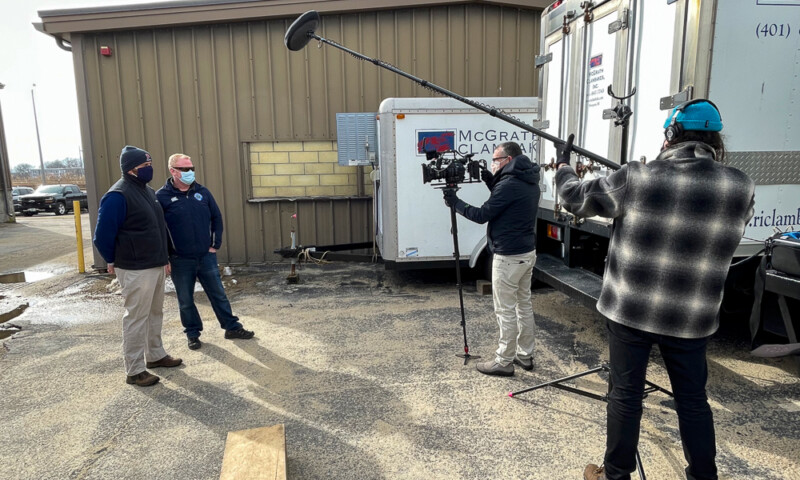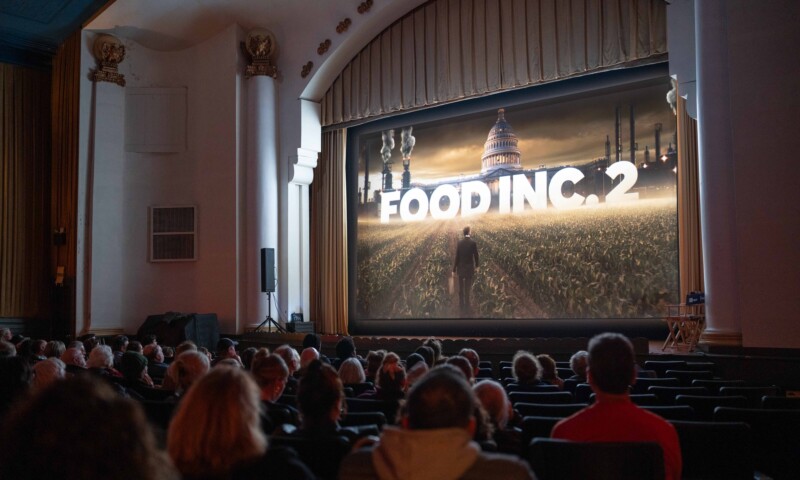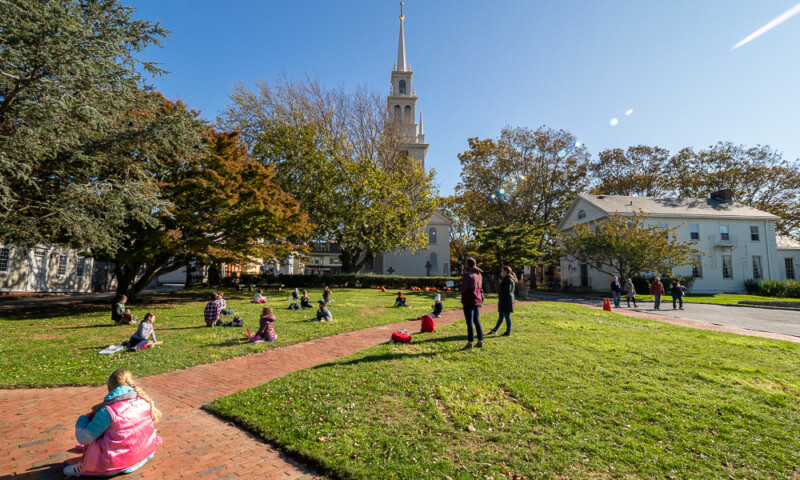Smart, Woke & Awesome –
next gen activism bringing communities together for change

Us Kids transforms the tragedy of the February 14, 2018 Parkland, Florida school mass shooting into a courageous coming of age story about leadership. Within a week of the deadliest high school shooting in United States history, members of the student body self-organized a #neveragain movement to ban assault weapons and press for legislative action, not just “thoughts and prayers”. These teens resiliently responded to grief and anguish by coming together in a collaborative drive for positive change. The students spoke out powerfully on social media and sketched their mission in a moving short documentary, “#MSDStrong“, posted to You-Tube. Their movement organically grew in purpose and passion, setting in motion a planned global day of direct action “of, by, and for young people”. On March 24, 2018 the Parkland high school students’ call to action reverberated with a massive March for Our Lives on DC, triggering over 800 collaborative events across the globe laser-focused on stopping gun violence now. This success prompted the students to organize a cross-country summer bus tour to foster community organizing ahead of the 2018 midterm elections and make gun control a decisive agenda issue for voters, especially young voters. The Parkland students’ inspired, nonstop direct action movement is credited with finally starting to tip public policy around gun control. Breath-taking data on the scope of the Goliath public safety issue they are up against can be found here: https://www.gunviolencearchive.org/charts-and-maps.
Us Kids is a positive story about generational change and answering the call to become a leader. The documentary sits back and quietly celebrates the teen-on-teen impact of each gesture of inspiring leadership. Forced to grow up quickly in the face of evil, the students helped one another, making it possible for each to strengthen (or first find) their own leadership voice and join in the call for change through newborn activism. Us Kids highlights the different ways the ensemble of students found their talents to contribute, since a successful team requires all kinds of leaders.
For example, Emma Gonzalez’s early, galvanizing speech on the need for action to stop gun violence led to the viral hashtag #WeCallBS on the generational failure of the adults in the room to legislate gun safety or step up to counter the political power of the well-funded NRA. Emma’s electrifying moment of speaking truth to power really did catalyze change. Us Kids follows Emma’s early journey as a charismatic movement teen leader, a role we watch her shapeshift and grow into. Now two years later, Emma Gonzalez is 20, and still a force to reckon with. She is followed by 1.5 million people on Twitter (@Emma4Change) and a speaker featured this week at the Democratic National Convention (along with former Senator Gabby Gifford). Millennial and Gen-Z community organizing continue to natively leverage tactics appropriate for this pandemic election of 2020.
Other Parkland teens stretched their existing skills to contribute in public and behind the scenes. For example, Jaclyn Corlin (now at Harvard) went from organizing school-wide social events to helping plan the initial march and voter registration drive, despite her parents’ displeasure. She made connections nationally with other gun violence survivors, demonstrating a different kind of quiet leadership. The Parkland Florida summer bus tour roster grew to include Black teens such as Bria Smith from Franklin High School in Milwaukee. Us Kids is especially good at showing how the March For Our Lives movement created collaborative solidarity with other teens across the country, vastly expanding the movement’s impact. The devastating impact of gun violence united these young Americans in common cause.

The film includes a clip of the son of Martin Luther King, Jr. sharing his optimism that maybe now, with this kind of national movement solidarity, real change might happen. He reminded the audience that Martin Luther King, Jr.’s own mother was shot dead in her church six years after her son was assassinated. Despite this violence, the survivors’ focus remained on fighting for what’s right and bending the arc toward justice achieved through democratic elections and voting.
Early in the film, traumatized Parkland survivor Sam Fuentes recounts how seeing Emma Gonazalez’s first electrifying “We call BS” viral video inspired Sam to reclaim her own agency and believe: “I can do that!”. Despite battling PTSD and public-speaking panic, Sam went on stage at the mass March for Our Lives demonstration and greeted the world with affirmation: “Hello! Beautiful People of America!” And then she vomited on live TV — but regrouped to show up again, and again, and again. Hers is a different profile in courage that Us Kids spends a lot of time following – with great respect, if not closure. The film strangely opens with the unseen Sam talking inside an enclosed bathroom; the door then slides open to reveal this young woman surrounded by unsheltering glass and mirrors. I had no idea where the film was going with this opening sequence. And I still don’t know what to make of the unexpected ending sequence where Emma and Sam share a cathartic experience in an enclosed space, breaking glass. The film chooses to close with Sam caught in an ambivalent gesture. Is she meant to be like the French Marianne? That personification of liberty, equality, fraternity and reason? I don’t know. Us Kids is wrapped in bookends that suggest the story it tells is only one of many still to be told.


Us Kids attention to Sam’s courageous inner and outer journeys is unique in the film. The documentary’s main storyline is an ensemble portrait of direct action leadership. This ensemble includes Cameron Kasky’s colorful perspective on analogies for what this movement experience was like. Most remarkable is David Hogg’s ability to navigate savage social media post-truth attacks, including death threats, and stay committed to changing election outcomes. Each team member was changed in different ways, and their own talents clarified for how and where they might best contribute and have impact. For David Hogg, his mission became shifting the vote. And this focus brought results.


Where do we find inspiration when we need it? The Parkland high school was named after the famous Everglades environmentalist and activist, Marjory Stoneman Douglas (1890-1998). Under crisis, the students looked to her example for their own leadership inspiration, quoting Marjory Stoneman Douglas at the end of their own documentary:
“There is always a need to carry on”.
Us Kids captures a teen-led direct action movement that built community, brought out the youth vote, built leadership, and ramped up adult accountability for tolerating gun violence. Now is a time when leadership matters more than ever. Difficult conversations must be had as we sort out our priorities going forward. A teacher laments the classroom door options available for the coming school year. Should doors be kept open to lessen the danger of Covid? Or classroom doors kept closed and locked as mandated because Active Shooter risk is a real thing in an American classroom. How did we get here? How do we go forward? Where will we find inspiring leadership?
Us Kids offers an answer. It is an inspiring portrait of the deep bench talent latent in America’s youth, ready to step up and collaborate on so many legacy challenges. Where did the Parkland teens start their change mission? With voting and public policy, because voting matters.
By Nancy Austin, PhD – newportFILM 2020 Humanities Blogger.
Nancy Austin is an educator, coach, and strategic research consultant helping shape stakeholder stories. Her Brown University PhD was on the entrepreneurial women who founded the Rhode Island School of Design. For decades Nancy Austin taught interdisciplinary courses at RISD, Yale, and WPI leveraging her broad background in science, math, art, architecture, and design. Her native STEAM orientation now includes advocacy around digital literacy and cybersecurity. With support from the Rhode Island Council for the Humanities.




